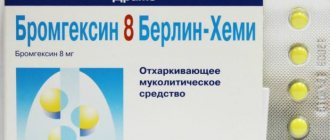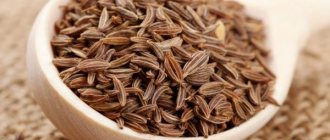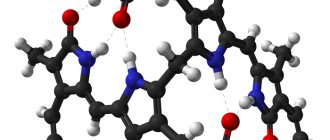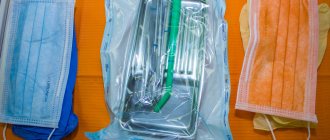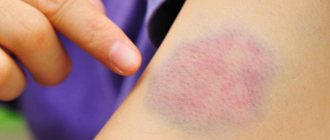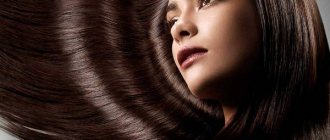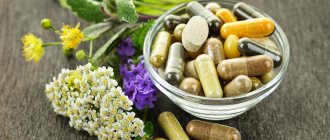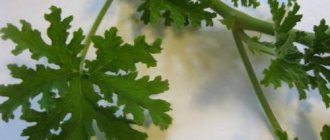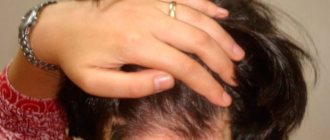Blood thinners reduce blood clotting and thus prevent the formation of blood clots. After all, too thick blood can lead to occlusion (blockage) of blood vessels and, as a result, to embolism, heart attack and stroke. There are many medications available to thin your blood. They should not be underestimated, because they have side effects: dangerous bleeding can occur, bones suffer, and dementia becomes more likely. In our article, we present the best natural (natural) blood thinners without side effects.
Who is suitable for natural blood thinners?
Cardiovascular diseases affect a large number of people around the world. To prevent premature death from heart attack, stroke, and embolism, millions of people regularly use blood thinners (anticoagulants).
But there are also many foods, herbs, spices and supplements that act as natural blood thinners.
If you are already taking blood thinning medications, you should not stop taking them immediately and use natural remedies. Because natural blood thinners are not as easy to dose. No one knows how many of them are needed to achieve a particular effect.
Of course, the possibility of using natural anticoagulants should be discussed with your doctor. You may be able to reduce your blood thinner dosage little by little.
Natural blood thinners are suitable for people who want to improve the quality of their blood and prevent the future need for pharmaceutical anticoagulants.
Blood thinning during pregnancy
Thick blood during pregnancy is a very common occurrence. In most cases, this situation is considered normal and is temporary. In this situation, the situation does not require treatment or assistance from a specialist. The blood condition is restored immediately after the birth of the child. This is how the body compensates for possible blood loss during childbirth.
There are cases when viscosity during pregnancy can harm not only the woman, but also the child. To find out the reason for the increased density, the woman undergoes a coagulogram. The analysis helps to understand the cause of clotting and identify deviations.
Lack of competent assistance can have a detrimental effect on health. Thick blood during pregnancy can have a detrimental effect on the heart, speeding up the rhythm, increasing the likelihood of thrombosis, heart attack or stroke. If a woman had a problem with poor blood clotting before pregnancy, then in this condition the situation will worsen many times over, which can lead to miscarriage.
To prevent blood thickening, expectant mothers should adhere to the following recommendations:
- Stay outdoors as much as possible.
- Carefully monitor your diet.
- Organize light physical activity.
- Drink the daily amount of water - 1.5-2 liters.
- Minimize foods such as: potatoes, sweets, smoked sausages, bananas, fatty foods.
- Eat as many fruits and permitted vegetables as possible, as well as figs, low-fat kefir, honey, garlic, olive and sunflower oil, and ginger.
During such a crucial period of life as pregnancy, it is best to refuse to thin the blood yourself at home and consult a doctor for a recommendation. In critical cases, treatment with medications taken according to a treatment regimen determined by the attending physician may be necessary.
Author: Borisenko Daria
Blood thinners: coumarins, heparins and acetylsalicylic acid
The term "blood thinner" is a little misleading because it doesn't actually thin the blood. The drugs only prevent it from clotting. Since the term "blood thinner" is widely used in the vernacular and is easily understood by everyone, we use it in this article even if it is not professionally correct.
Because blood clotting requires different processes, blood thinners can reduce clotting by using very different mechanisms to make the blood less thick.
Coumarins
In Europe, most people take coumarins, also called vitamin K antagonists, because they block its action. Vitamin K is necessary for the body to form clotting factors. If this vitamin is blocked, clotting factors cannot be formed and the blood becomes thinner, meaning it no longer clots as easily.
Coagulation factors (blood clotting factors) are special endogenous proteins that can change their state from liquid to solid under certain conditions (for example, in the case of injury) and thereby lead to stagnation of blood in some places and the formation of blood clots.
The group of vitamin K antagonists includes phenprocoumon (commercially known as Marcumar) and warfarin.
Heparins
Other blood thinners are heparins. If you were given injections to prevent thrombosis after surgery, it was most likely heparin. Heparins work differently than vitamin K antagonists. They speed up the action of the body's own anticoagulants (antithrombin).
Acetylsalicylic acid
You may be taking acetylsalicylic acid (such as aspirin) to thin your blood. This group of blood thinners suppresses the function of platelets so that they can no longer form clots as well.
The best way to thin the blood after 50 years at home: list of drugs
Note that many doctors consider blood thinners to be symptomatic treatment because they are typically used in emergency situations.
What is the best way to thin the blood after 50 years, list of drugs:
- Warfarin. This is a medicine that is prescribed for myocardial infarctions and strokes, as well as for repeated thromboses. Often the drug is prescribed not for the purpose of prevention, but for severe illnesses caused by thick blood and the formation of blood clots.
Warfarin - Heparin. This drug is sold in several forms, you can find tablets, ointment, and also ampoules for intravenous administration. This drug is classified as an emergency medicine for heart attacks and strokes. It is administered to dissolve already formed blood clots, in order to eliminate the re-gluing of blood particles. It is used in hospital settings and for treatment at home. Heparin ointment is often used to treat hemorrhoids and varicose veins. It helps cope with blood clots and resolves them.
Heparin - Fenilin. This is a drug and an indirect anticoagulant. It is very effective for thrombosis, as well as for myocardial infarction and stroke. The drug is often prescribed after surgery, after valve replacement. The price of the drug is low, so almost everyone can afford it. You need to take one tablet four times a day. The maximum daily dose is 180 milligrams.
Fenilin - Plavix. This is a drug that contains clopidogrel, preventing the formation of blood clots. Prescribed for the treatment of myocardial infarction. Often prescribed for prophylactic purposes to prevent heart attack, the formation of blood clots, and coronary artery disease. The price of the drug is quite high, but since there are no contraindications for stomach and intestinal diseases, it can be useful for those who suffer from stomach ulcers. In addition, it does not act like aspirin; its mechanism of action is different. This allows you to more effectively fight blood clots and prevent the formation of new ones.
Plavix
Anticoagulants: side effects
Blood thinners are known for their side effects. The main problem is the complex dosage, which must be determined individually for each patient. Therefore, it always takes some time to “settle” the correct dose. And even after this, the situation can constantly change.
For this reason, many patients using coumarin anticoagulants should visit their doctor at least once a month for check-ups. Another group of patients can use a measuring device to monitor blood clotting (INR value) on their own at home and adjust the medication dose accordingly.
The INR (International Normalized Ratio for clotting time) value is around 1 or slightly lower in healthy people.
If the value increases without the use of blood thinners, a health problem such as vitamin K deficiency occurs. Vitamin K regulates the blood's ability to clot. If it is absent, coagulation disorders are observed.
When the blood needs to be diluted with medication (to prevent thrombosis and embolism), the person takes so much blood thinner that the INR value increases to 2-3. In some cases with a particularly high risk of blood clots, the value even increases from 3.5 to 4.5.
The value achieved with medication is very different from the value of healthy blood. The blood is “thinned” much more than in the case of healthy blood. What are the consequences?
Internal bleeding
Internal bleeding may occur as a result of taking blood thinners. If it is minor, the bleeding may simply not be noticed. But there is a constant loss of blood, which the body must compensate for.
If the bleeding is more severe, you can recognize it by the fact that blood suddenly appears in the urine or stool. Bleeding gums or nosebleeds and bruising of the skin may occur even if you only hit yourself lightly.
It is especially dangerous if bleeding occurs in the brain. In the long term, this can lead to dementia progressing more quickly.
If there is existing kidney damage, the medicine is not able to be cleared quickly from the body, so internal bleeding can be fatal.
Sick bones
If blood thinners must be taken for a long period of time (more than 1 year), it can negatively affect bone metabolism, reduce bone density, and contribute to osteoporosis.
This is not particularly surprising since vitamin K antagonists reduce the effects of this vitamin. Vitamin K is necessary not only for the formation of blood clotting factors. It is also important for healthy bones.
Even the newer blood thinners damage bones, albeit in a different way, because they inhibit the growth of osteoblasts (the cells that form bones). However, their effect is more or less the same as that of vitamin K antagonists.
Indications for blood thinning
Many factors influence blood clotting. Insufficient fluid intake or lack of regular physical activity leads to inhibition of metabolic processes and hematopoiesis, which leads to dehydration of the body.
Deficiency of macro- and microelements, vitamin C, and selenium are also a common cause of blood thickening. Impaired liver function due to overload of the stomach with fatty, salty and smoked foods also affects the condition of the blood.
Conversely, a lack of salt can increase its clotting, since blood is a saline solution. An important factor is the unfavorable ecology, which negatively affects the environment and health. Thick blood coagulates and clogs blood vessels, forming blood clots.
Blood thinning at home has a number of indications. It is necessary both for prevention and as a treatment for any disease.
Indications:
- Increased blood clotting due to genetic predisposition.
- Atherosclerosis.
- Hypertension.
- Cardiac ischemia.
- Increased physical activity.
- Rehabilitation period after a heart attack.
- Rehabilitation period after stroke.
- Phlebeurysm.
- Elderly people.
People over 60 years of age are not recommended to thin their blood on their own, but only do so as directed by a doctor. Most elderly people with poor blood clotting mindlessly take large doses of Aspirin and Trumbo ACC in order to thin the blood and prevent thrombosis.
Such medications in large quantities disrupt the functioning of the intestines and destroy its walls. Mature people should use traditional recipes or dosages as recommended by a specialist.
Blood thinners: incompatibility with other drugs
It is important to pay close attention to which medications can and cannot be taken with blood thinners.
Blood thinners are commonly prescribed to older adults, who are often taking many other medications at the same time, such as blood pressure pills, blood sugar pills, statins, nonsteroidal anti-inflammatory drugs, and more.
The latter, in particular, significantly enhance the effect of blood thinners, since they often themselves have blood thinning properties.
Some antidepressants, antibiotics, thyroid hormones, and painkillers also have a strong blood thinning effect.
However, cortisone and metformin (lowering blood sugar) weaken the effect of coumarins.
Blood thinners
A special blood thinner will help achieve results without the use of medications or other means. It can be used both at home and while traveling. The device affects blood clotting using a cold laser.
The device painlessly restores blood fluidity, normalizes sugar and cholesterol levels, lipid properties, improves immunity, and improves the transport of nutrients.
The device has the appearance of a watch. Using the device is very simple. At the time of the procedure, they must be put on so that the dial is on the wrist. In this zone there is a cluster of blood vessels, which should be affected by the laser beam. The frequency of the procedure is 2 times a day for 30 minutes, morning and evening.
Goji berries are a natural blood thinner
Used as a medicinal plant or medicinal fruit in Asia, the berry is said to be capable of enhancing the effects of blood thinners to such an extent that in some cases a significant increase in INR value was observed after the respective patients drank goji berry tea or juice.
It is not yet known how the berry does this, but it is suspected that it has a strong blood-thinning effect. Therefore, there is a strong warning against taking goji berry medications if you are taking blood thinners.
Unfortunately, it has not been tested whether goji berry can provide enough blood thinning for some patients to be able to stop taking anticoagulants completely.
Goji berry can serve as a natural blood thinner. But there are many other foods, herbs and spices that thin the blood.
Of course, they will never reduce blood clotting the way pharmaceutical blood thinners do, but that's a good thing. Because nature always seeks to regulate and heal. It will never thin the blood so much that internal bleeding occurs.
If you include natural blood thinners in your diet, this measure, together with a healthy lifestyle, will also help prevent the occurrence of cardiovascular diseases.
Causes of diseased blood vessels and “too thick blood”
The unhealthy tendency for blood to clot or thrombose may actually be congenital, but this is rarely the case. Rather, the reasons lie in a person’s lifestyle and diet.
Thrombosis usually occurs in the veins, that is, where blood flows more slowly. Blood flow can be accelerated if a person moves regularly. Thus, exercise is one of the best measures to maintain blood flow. A sedentary lifestyle combined with excess weight is poison for the blood flow and blood vessels.
Another cause of blood clots is damage to the walls of blood vessels. Deposits (arteriosclerosis) and blood clots tend to form at these points. If a blood clot breaks loose and becomes lodged in a subsequent narrower blood vessel, thrombosis or embolism occurs.
Damage to the walls of blood vessels and an increased tendency of the blood to clot and deposits occur, in particular, for the following reasons:
- Lack of exercise (also due to being bedridden);
- Smoking (constricts blood vessels, causing damage to blood vessel walls);
- Unhealthy foods lacking antioxidants and vital nutrients;
- Lipid metabolism disorders;
- High homocysteine levels;
- Fluctuations in blood sugar (diabetes);
- High blood pressure;
- Overweight;
- Synthetic hormones (birth control pills!);
- Chronic inflammatory diseases, such as rheumatic diseases, tumor diseases, autoimmune diseases, etc.;
- Drugs.
Although unhealthy food is already mentioned in the third point, most of the other factors listed are often the result of poor diet and lifestyle.
For example, elevated homocysteine levels occur mainly due to a lack of vitamins and antioxidants. Fat metabolism, blood sugar and blood pressure, not to mention weight, can also be very well regulated through nutrition.
The corresponding preventative measures may not seem impressive, but they have a phenomenal effect:
- Physical exercise, sports;
- Quitting smoking and alcohol;
- Healthy eating;
- Missing vital substances through nutritional supplements;
- Fighting excess weight;
- Consuming natural blood thinners in the form of foods, herbs and spices.
Natural blood thinners
Unfortunately, natural blood thinners are not very popular in science and research. On the contrary, it is even preferable to warn patients taking anticoagulants about the effects of natural blood thinners and discourage their use.
It's a pity. Because it is possible to naturally thin your blood and significantly improve your well-being without constantly resorting to medications with dangerous side effects.
However, since there has been little research into the mechanism of action and proper dosage of natural blood thinning products, their targeted consumption is officially reserved for prevention only.
For the same reason, we cannot provide specific dosage information. Therefore, the possibility of taking dietary supplements and herbs to thin the blood should be discussed with your doctor.
According to various studies in recent years, blood-thinning and blood vessel-protecting foods and dietary supplements include:
- Nattokinase;
- Bromelain;
- Turmeric;
- Ginger;
- Cinnamon;
- Capsaicin;
- Garlic;
- Omega-3 fatty acids;
- Nettle and basil;
- Dark chocolate;
- Oligomeric proanthocyanidins.
The following foods (and many others) may also act as natural blood thinners:
- Bulb onions;
- Red wine extract (resveratrol);
- Ginseng;
- Tomatoes;
- Berries.
Nattokinase
In 2006, Californian scientists were able to demonstrate in the laboratory a significant reduction in blood clotting and viscosity using an enzyme called nattokinase, which is obtained from fermented soybeans. Nattokinase is considered a good fibrinolytic (anticoagulant) agent.
For this reason, some manufacturers have been enthusiastic about the fact that nattokinase is a natural blood thinner and can quickly dissolve blood clots. This, of course, was quickly averted. Because dietary supplements cannot be advertised with such specific "healing claims" - regardless of whether the claim is correct or not.
However, in another study, this time on humans, the blood thinning effect of soy enzyme was confirmed. In a 2015 Japanese study of 12 healthy young men, a single dose of nattokinase showed improved fibrinolysis (the process of dissolving blood clots and blood clots). This means that nattokinase increased the body's ability to dissolve blood clots on its own.
However, nattokinase is an isolated enzyme, which means it is not a natural food on its own. Therefore, if dosed incorrectly, it can also (like medicated blood thinners) cause excessive blood thinning.
If you want to consume nattokinase in its natural form through food, you might consider eating natto, a traditional Japanese dish made from fermented soybeans that can be purchased in some Asian stores.
However, this dish is relatively rich in vitamin K. It (in large doses) is an antagonist for blood thinners. Therefore, it is better to use the product “nattokinase” purified from vitamin K.
Bromelain
Scientists at the British University of West London conducted six studies on bromelain and blood thinning in 2011. Bromelain, a known enzyme from pineapple, has been shown to be suitable for the treatment of acute thrombophlebitis (superficial vein thrombosis) as it reduces platelet clumping (blood clotting), has a protective effect on the heart and prevents the formation of blood clots.
Turmeric
Turmeric is a spice that has now been extensively studied. It has many health benefits, whether it's detoxifying, protecting your liver and teeth, lowering blood sugar, or preventing cancer.
Research shows that turmeric protects against arteriosclerosis and platelet clumping by preventing blood clots. The blood thinning effects of turmeric seem to be so impressive that it is even recommended to stop taking turmeric supplements two weeks before your scheduled surgery.
Turmeric may also increase the blood thinning effects of warfarin, aspirin, etc., so it is not recommended as a dietary supplement if you are taking pharmaceutical anticoagulants.
A 2012 Korean study examined the anticoagulant properties of curcumin, an isolated active compound from turmeric. Surprisingly, the blood thinning effects of curcumin were so good that it was said that daily consumption of turmeric can maintain healthy blood properties for a long time.
Ginger
Ginger is also considered a natural blood thinner. In a study conducted in Australia in 2003, the activity of substances isolated from ginger root was tested for blood clotting. Ginger thinned the blood better than aspirin.
However, a person does not eat isolated substances of ginger root, and most often only a piece of it. Therefore, he does not take so many blood thinners that they have a strong anticoagulant effect.
But regular consumption of ginger root in any case promotes healthy blood. After all, it has strong antioxidant properties, which make ginger an excellent protector of the cardiovascular system.
Cinnamon
Cinnamon has anticoagulant effects, but mainly in the form of extracts, such as cinnamon essential oil or cinnamon distillate. Aqueous extract of cinnamon (cinnamon tea) does not have a blood thinning effect. This also suggests that cinnamon-specific substances must be taken in high doses to achieve therapeutic effects.
Cayenne pepper (capsaicin)
A 2014 Australian study found that capsaicin, a hot ingredient from chili peppers (cayenne pepper), may act as a natural blood thinner and slow the progression of blood clots. Chili peppers have blood thinning properties, but only in large doses or in the form of isolated capsaicin as a dietary supplement.
Garlic
Garlic has many beneficial properties related to vascular and blood health. It lowers cholesterol and blood pressure, dissolves blood clots. That is, a small onion influences all those factors that could otherwise lead to cardiovascular disease. Unfortunately, there is no consensus on the appropriate dosage.
There are also no current studies that specifically address garlic as a natural blood thinner. Garlic is rather more recommended as part of a healthy diet to prevent arteriosclerosis.
Omega-3 fatty acids
Omega-3 fatty acids are known for their blood thinning effects. Taking these natural blood thinners along with anticoagulant medications increases their effectiveness.
When you take omega-3s preventatively (as a dietary supplement) or cook with the appropriate oils, you are promoting healthy blood flow.
Interestingly, alpha-linolenic acid seems to be particularly effective here. It is a much better blood thinner than the long-chain omega-3 fatty acids DHA and EPA.
An excellent blood thinner is adding flaxseed and hemp oil to fresh food (these oils should not be heated).
Nettle and basil
Interestingly, even foods rich in vitamin K, such as nettle and basil, can thin the blood. Research has shown this. However, in the experiments they used not the green leaves of these plants, but an aqueous extract, that is, tea from nettle or basil.
But don't consider vitamin K the enemy. After all, foods rich in vitamin K are some of the healthiest, such as broccoli, cauliflower, herbs and all green leafy vegetables.
It is now known that eating these foods is not a problem while taking blood thinners. It is only necessary to adjust the dosage of anticoagulants accordingly and consume a similar amount of vitamin K daily to avoid large fluctuations.
Foods rich in vitamin K have more advantages than disadvantages for blood thinner patients. After all, they naturally supply the body not only with vitamin K, but also with calcium, magnesium, chlorophyll and valuable secondary plant substances.
Cocoa and dark chocolate
The active substances in natural cocoa are so strong that dark chocolate (with a high cocoa content and little or no sugar) becomes a real medicine!
Cocoa contains many highly concentrated flavonoids and oligomeric proanthocyanidins. In 2003, the American Journal of Clinical Nutrition reported on a study in which participants were given either a cocoa supplement or a placebo for 28 days. At the end of the trial, participants who consumed cocoa had significantly reduced blood clotting. This shows that cocoa is well suited as a natural blood thinner.
Oligomeric proanthocyanidins
Of course, oligomeric proanthocyanidins are not only found in cocoa. Appropriate amounts of proanthocyanidins are also present in grape seed and red wine extract (resveratrol).
Proanthocyanidins have excellent properties for the cardiovascular system.
As a powerful antioxidant, they protect the walls of blood vessels from oxidative stress and the effects of free radicals. Blood vessels remain elastic and stable. No damage or deposits are formed.
Oligomeric proanthocyanidins have been proven to relieve pain and swelling, so are a good natural aid for the entire vascular system, and therefore improve blood flow.
Combining natural blood thinners
This list of natural blood thinners shows how well a proper diet with appropriate nutritional supplements can protect against excessive blood clotting, blood clots, and slow blood flow.
The foods mentioned above become natural blood thinners thanks to flavonoids (certain phytonutrients). This is why a plant-based diet is an excellent disease preventative when it comes to cardiovascular problems.
Sweet clover
Sweet clover as part of herbs for blood thinning
Dicumarin (dicumarol) is a substance that was isolated from decomposing sweet clover in the 40s of the last century. Dicumarin prevents blood clotting and thins it. The plant not only prevents the formation of blood clots, but also promotes their resorption. Melilotus officinalis is actively used in the treatment of thrombophlebitis. Often the herb is included in the collection for the treatment of hemorrhoids. The same main active ingredient, coumarin, helps fight many cardiovascular problems. Increases systolic blood pressure and improves cerebral, coronary and peripheral blood supply.
We recommend reading: Anemia in adults and children
Recipes using sweet clover to thin the blood
2 tablespoons of sweet clover should be poured into two glasses of clean water and placed in a water bath for 30 minutes. The strained broth is taken 1 tablespoon three times a day. For the tincture, dry grass is used, which must be poured with 500 ml of vodka. Let the mixture brew for 14 days and strain. Take 15 drops three times a day with water.
Garlic
It may be number one on the best herbal blood thinner list, and it is certainly one of the best options. Used to improve the taste of various products. It is used to expel parasites from the body.
It has been proven to lower blood pressure. Garlic has natural antibiotic properties. It was hung around the necks of slaves to prevent outbreaks of epidemics.
Another known property of garlic is to thin the blood and lower blood pressure. A good product for the prevention of cardiovascular diseases.
Mint
Used throughout the world for cooking, preservation, ice cream, and toothpaste, mint also has a wide range of medicinal uses, but is primarily known for its soothing properties for the gastrointestinal tract and nervous system. Peppermint is also vitamin K, which prevents abnormal clotting of blood clot. Used to thin the blood.
Oregano
Oregano is used in a wide variety of cuisines around the world as a spice for culinary use. It is used in various branches of medicine. The ability of oregano to thin the blood is only one property of its use.
Ginger
The perennial herb ginger is the basis of traditional Chinese medicine and a well-known stomach pain reliever. It is used to prevent nausea. Ginger also has a place in the list of folk methods for thinning the blood and restoring healthy blood circulation.
Curry powder
The spice curry powder, the most famous flavoring in Indian cuisine, also boasts salicylic acids, which are useful and effective in fighting blood clots. Curry cleanses the body and improves the functioning of the gastrointestinal tract. It contains vitamin K, which helps dilute the blood.
Licorice
One of the oldest herbal medicines, licorice root is used to combat respiratory diseases and osteoarthritis (damage to the cartilage tissue of the joint). It is a common remedy for indigestion and other gastrointestinal ailments such as ulcers. It also earned a place in our top ten herbal remedies. Licorice contains natural salicylic acid, which makes it possible to thin the blood naturally.
You can learn how to use licorice root correctly from this video.
We recommend reading: Treatment of hemorrhoids at home - herbal recipes
Cinnamon
Cinnamon may be one of the most versatile herbal remedies for preventing blood clots. It can be used in drinks such as tea. Cinnamon is used to prepare a wide variety of dishes and baked goods to improve taste. Cinnamon is also believed to have a number of other health benefits.
Turmeric
Turmeric is known as a folk anti-inflammatory, but it also earns a spot on the top ten blood thinners list thanks to its turmeric content. Used for a variety of culinary and medicinal purposes, turmeric is one of the oldest herbal remedies in ancient medicine.
Paprika
The herb has been used in folk medicine for many years. The salicylic acid content of paprika makes it also useful for thinning the blood.
Cayenne pepper
The action of cayenne pepper is aimed at improving blood circulation. The spice may benefit the cardiovascular system by promoting blood thinning.
To further enhance blood thinning, these herbs can be combined with foods that keep the blood normal.
Therefore, if you
- eat a lot of vegetables and fruits rich in flavonoids and fiber,
- use high quality oils with omega-3 fatty acids,
- Snack on dark chocolate from time to time
- generously season your dishes with turmeric, ginger and cinnamon,
- eat garlic and onions,
- sometimes you drink tea with nettles,
- if necessary, take certain nutritional supplements such as omega-3, curcumin and capsaicin,
- stick to specific meal times and
- do enough exercise in the fresh air,
then not only your blood will be in excellent condition. Your blood vessels are also protected! No more deposits should form and your cardiovascular system will cope well with old age.
Bibliography:
- Pearson DA, Bone health and osteoporosis: the role of vitamin K and potential antagonism by anticoagulants. Nutrition in Clinical Practice, Oktober 2007;
- Gioia G et al., The role for dietary omega-3 fatty acids supplementation in older adults. Nutrients, Oktober 2014;
- Natürliche Blutverdünner ohne Nebenwirkungen, Zentrum der Gesundheit, 03.12.2019;
- Jolayemi Adebayo Taiwo Ezekiel, Ojewole John Akanni Oluwole, Effects of capsaicin on coagulation: Will this be the new blood thinner, Science Publishing Group, 30. September 2014.
Share this article
Leeches for blood thinning
Medical leech is another way to reduce blood viscosity. Her saliva is a storehouse of biologically active substances that cures many diseases. It contains hirudin, which thins thick blood.
Hirudin contained in saliva promotes the formation of platelets, prevents the occurrence of heart attacks, strokes and thrombosis.
Hirudotherapy (treatment with leeches) is prescribed for diseases of the cardiovascular system, varicose veins, hypertension and other diseases. A leech bite increases immunity and speeds up metabolic processes.

